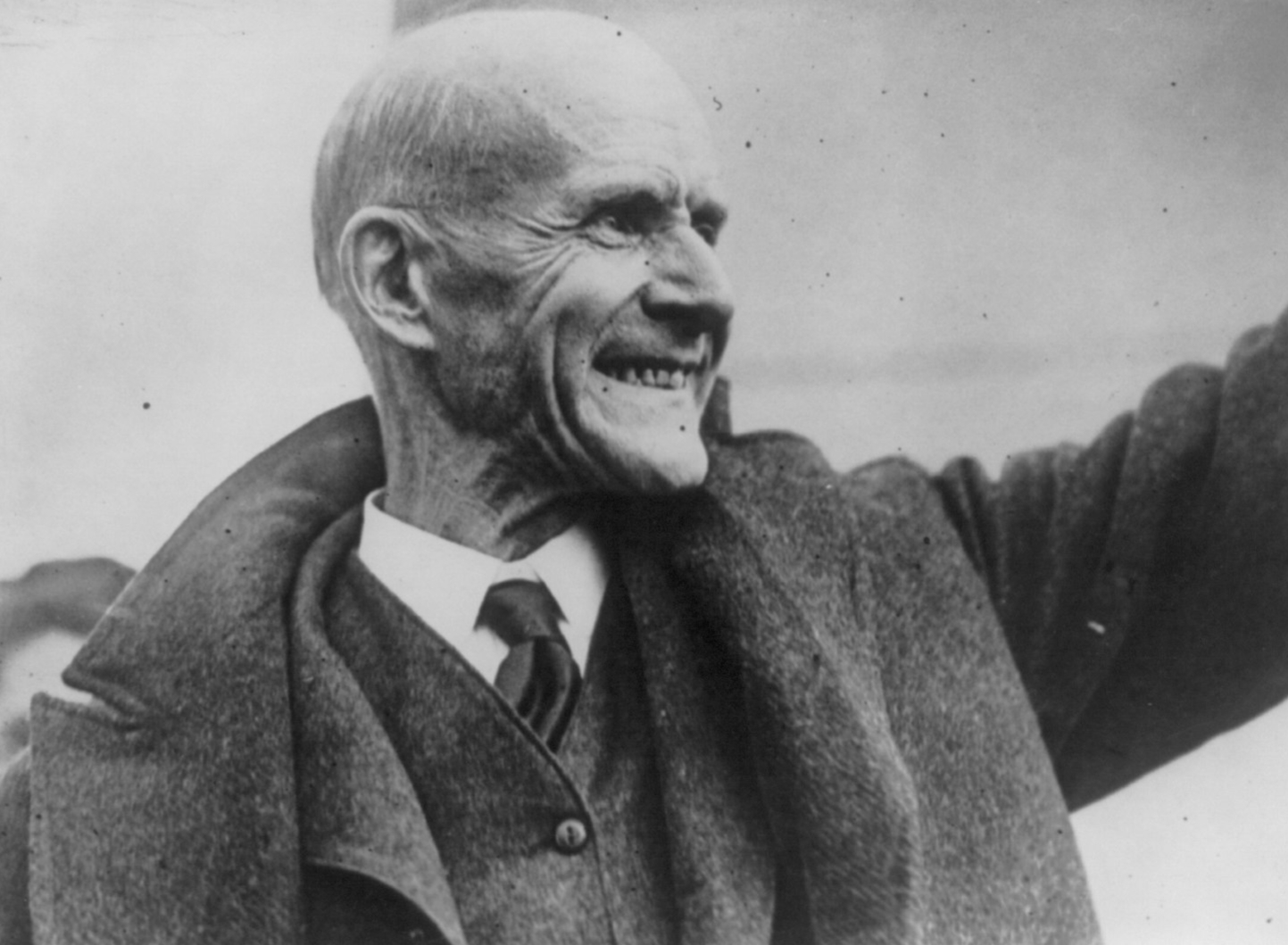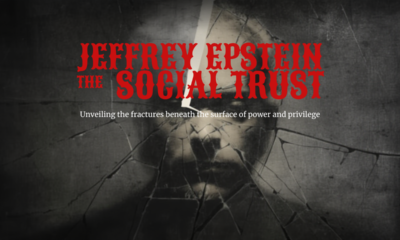Civilization
‘Democratic Principles and the Spirit of Free Institutions’

It’s the last Friday in May during an election year and whether Americans know it or not, they woke up this morning in a nation different than it was the day before.
A former President stands dubiously convicted
A former U.S. president – and the Republican Party’s all-but-certain nominee for president this November – now stands convicted of vague crimes by a Democratic Party jury on charges brought by a Democratic Party prosecutor overseen by a plainly hostile Democratic Party judge.
Heretofore responsible conservatives are today openly calling for GOP prosecutors to respond to the Democrats’ “lawfare” by exacting retribution in legal venues friendly to their side. Presumably, that strategy would entail indicting prominent Democrats on criminal charges of some nature in an escalation meant to produce, well, it’s not clear what the endgame is here.
This much is obvious, at least to me: By bringing such a dubious criminal case against a former president, the Democrats have now openly criminalized public policy differences. This is a dangerous game. It hardly transfigures Trump into Nelson Mandela, an unwise comparison Trump likes to invoke himself. Liberals also bristle at a more current analogy with Trump as Alexei Navalny, the Russian opposition leader exiled, imprisoned, and murdered by Russian authorities on phony charges, presumably on orders from Vladimir Putin.
The real comparison: Eugene V. Debs
Democrats would say the comparison offends them because Navalny was a heroic figure and Donald Trump is a menace to society. This view is sincerely held, for sure. But I suspect something else makes Democrats uneasy: Deep down many of them know that they’ve weaponized the criminal justice system in a way that is unhealthy for a republic; that they’ve undermined their own plot line about “saving democracy”; and that in their zeal to get Trump, Democratic Party leaders and millions of rank-and-file Democrats alike have all indulged their inner Vladimir Putin.
Friday is also the day of the week that I invoke a quotation meant to be enlightening or uplifting. Today’s comes from a third historic figure persecuted for his political beliefs and someone Donald Trump would not invoke because he was a committed Socialist. I’m talking, of course, about Eugene V. Debs.
Eugene Victor Debs, whom I’ve written about before in this space, was born in 1855 in Terra Haute, Indiana, the son of immigrants from the Alsace region in France. His parents’ intellectual bent and progressive leanings can be gleaned from his name, borrowed from two French writers, Eugene Sue and Victor Hugo.
The great railroad strike
Gene Debs was a solid student but a restless soul. Leaving school at 14, he went to work as a fireman on the railroad line between Terra Haute and Indianapolis. The 1870s and 1880s were a time of political upheaval in the trade unions and Debs was in the middle of it. His first union was the Brotherhood of Locomotive Firemen. As he rose through the ranks of the BLF, Debs became editor of the union magazine and a well-known political personage in his hometown. He served as city clerk and was elected to Indiana’s state legislature in 1884. But by then he was becoming too radical for the Democratic Party and served only one term.
He was also finding his own labor union too conservative for his vision. After an 1888 strike against Burlington Railroad ended in defeat for labor, Debs began pushing for a more unified – and confrontational – approach. His radicalism would pit Debs and his union against the federal government, most of the Democratic Party, and the nation’s liberal establishment.
Federal troops were called to quell the strike; court injunctions were issued. Through it all, the union held fast, an effort widely denounced as encouraging anarchy.
Vilification competes with celebration
“Organized labor makes a miserable showing in its attempts to give aid and comfort to the anarchists at Chicago,” intoned a July 9, 1894, New York Times editorial. “The truth is that every labor union man in the city of New York knows that he becomes a criminal the moment he puts himself on the side of Debs.”
Calling for Debs’ jailing, the Times added, “[h]e is a lawbreaker at large, an enemy of the human race.”
That was one view. To his followers, however, Debs was a great friend of the human race. They believed he was only the enemy of a corrupt political system that sustained itself by crony capitalism and stepping on the throats of working people. He was jailed (for contempt of court) during the Pullman strike, but all that did was further alienate Debs from a political system he believed needed reforming.
He ran for president as a Socialist five times, starting in 1900. His high-water mark came in 1912, when he received 6% of the vote. In 1920, he ran from a prison cell in Atlanta, receiving more than 900,000 votes. That campaign was set in motion by the election of 1916. That year, Debs ran for Congress for an open Indiana seat, mainly on the same platform Woodrow Wilson was using in his reelection campaign: keeping America out of the First World War. Debs lost while Wilson won – and the latter then promptly steered the United States into war.
Censorship, legal and extralegal
Debs responded by giving antiwar speeches. It seems incredible now, but the Espionage Act of 1917 made such speeches a federal crime. As Debs addressed a June 16, 1918, rally in Canton, Ohio, undercover Department of Justice agents in the crowd took notes as he spoke. Antiwar speakers had been arrested across the country, and after the Canton speech, it was the turn of 62-year-old Gene Debs.
Once again, America’s most influential newspapers egged the government on. The Chicago Tribune’s headline was typical: “Debs Wakes Up Howling at War; U.S. May Get Him.” At his trial in federal court in Cleveland, Debs was convicted and sentenced to 10 years in prison. And although it has venerated Debs in recent years, The Washington Post cheered his conviction at the time. “His activities in opposition to the war preparation were dangerous,” the Post editorialized. “His conviction … serves notice to all that disloyalty and sedition, even though masquerading under the guise of free speech, will not be tolerated.”
That’s an odd phrase for a newspaper – “under the guise of free speech” – and the U.S. Supreme Court should have seen through it and set aside the conviction. But it didn’t. It would take a presidential commutation by Woodrow Wilson’s successor to free him. In the end, Gene Debs himself had a much clearer understanding of the First Amendment than federal prosecutors, the jury, the courts, the president, even the press.
Debs first to call for repeal of an act explicitly targeting free speech
“I believe in free speech, in war as well as in peace,” Debs proclaimed at his trial. “If the Espionage Law stands, then the Constitution of the United States is dead.”
It’s hard for me to imagine two more different politicians than Donald Trump and Eugene Debs, but Trump faces more charges far more serious than the frivolous 34 brought by New York prosecutor Alvin Bragg. A federal grand jury has charged him with a slew of felonies, including the self-same Espionage Act, which is what got me to thinking of Gene Debs. Here is what he told a U.S. District Court Judge at his 1918 trial:
Your Honor, years ago I recognized my kinship with all living beings, and I made up my mind that I was not one bit better than the meanest on earth. I said then, and I say now, that while there is a lower class, I am in it, and while there is a criminal element I am of it, and while there is a soul in prison, I am not free.
If the law under which I have been convicted is a good law, then there is no reason why sentence should not be pronounced upon me. I listened to all that was said in this court in support and justification of this prosecution, but my mind remains unchanged. I look upon the Espionage Law as a despotic enactment in flagrant conflict with democratic principles and with the spirit of free institutions.
And that is our quote of the week.
This article was originally published by RealClearPolitics and made available via RealClearWire.
Carl M. Cannon is the Washington Bureau Chief of RealClearPolitics and Executive Editor of RealClear Media Group. Carl is a past recipient of the Gerald R. Ford Journalism Prize for Distinguished Reporting and the Aldo Beckman Award, the two most prestigious awards for White House coverage. Previous positions include executive editor of PoliticsDaily.com, D.C. bureau chief for Reader's Digest and White House correspondent for both the Baltimore Sun and National Journal. He was a 2007 fellow-in-residence at Harvard University's Institute of Politics, a past president of the White House Correspondents’ Association, and is a published author.
-

 Civilization5 days ago
Civilization5 days agoWhy Europe Shouldn’t Be Upset at Trump’s Venezuelan Actions
-

 Christianity Today5 days ago
Christianity Today5 days agoSurprising Revival: Gen Z Men & Highly Educated Lead Return to Religion
-

 Civilization3 days ago
Civilization3 days agoTariffs, the Supreme Court, and the Andrew Jackson Gambit
-

 Civilization3 days ago
Civilization3 days agoWhy Europe’s Institutional Status Quo is Now a Security Risk
-

 Civilization4 days ago
Civilization4 days agoDeporting Censorship: US Targets UK Government Ally Over Free Speech
-

 Executive3 days ago
Executive3 days agoWaste of the Day: Wire Fraud, Conflicts of Interest in Connecticut
-

 Civilization3 days ago
Civilization3 days agoEpstein and the destruction of trust
-

 Civilization2 days ago
Civilization2 days agoTrump Lashes Out at Supreme Court as Under ‘Foreign Influence’








